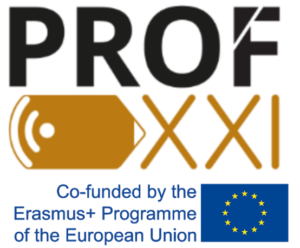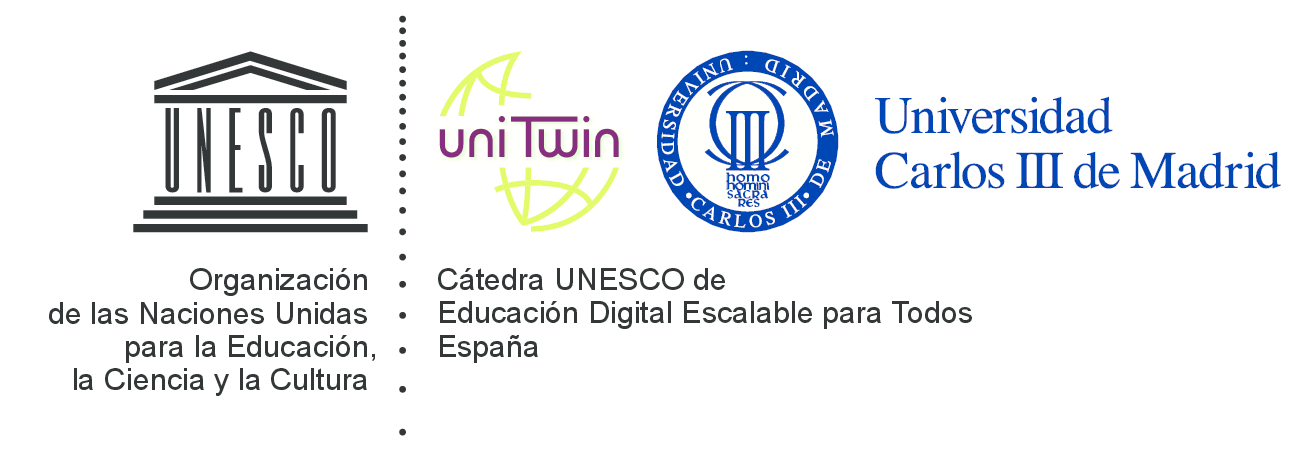One of the most common concerns among teachers who are conducting virtual classes is to connect their students with the various activities proposed within the class. They want students to be encouraged to participate and interact, to create a collaborative working environment, and to ensure that communication among different participants is smooth, thus promoting more active learning.
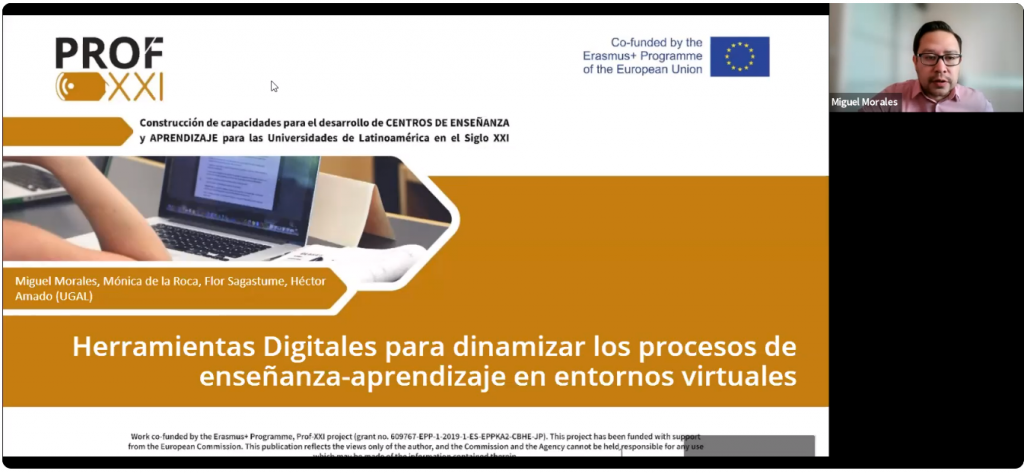
In response to this need, the PROF-XXI project conducted the «Tools for Enhancing and Assessing» workshop on June 24. The workshop was led by Dr. Miguel Morales, MSc. Mónica de la Roca, Dr. Héctor Amado, and MSc. Flor de María Sagastume from Universidad Galileo (Guatemala), partners of the PROF-XXI project.
At the beginning of the workshop, Dr. Morales presented the challenges currently faced by teachers in the teaching and learning process and emphasized that the starting point for change is active learning, with the student’s role being central.
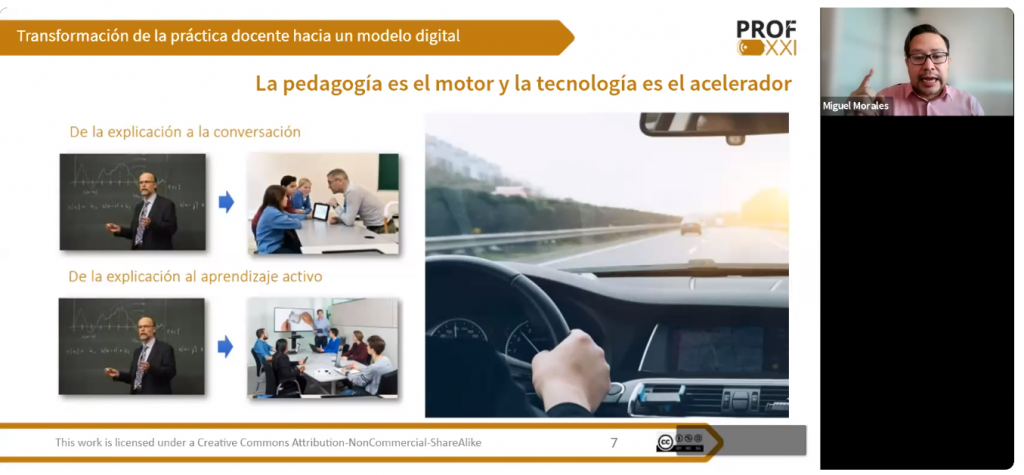
Dr. Morales emphasized the importance of knowing and using a set of useful and practical digital tools that will support teachers in achieving active learning when delivering their virtual classes.
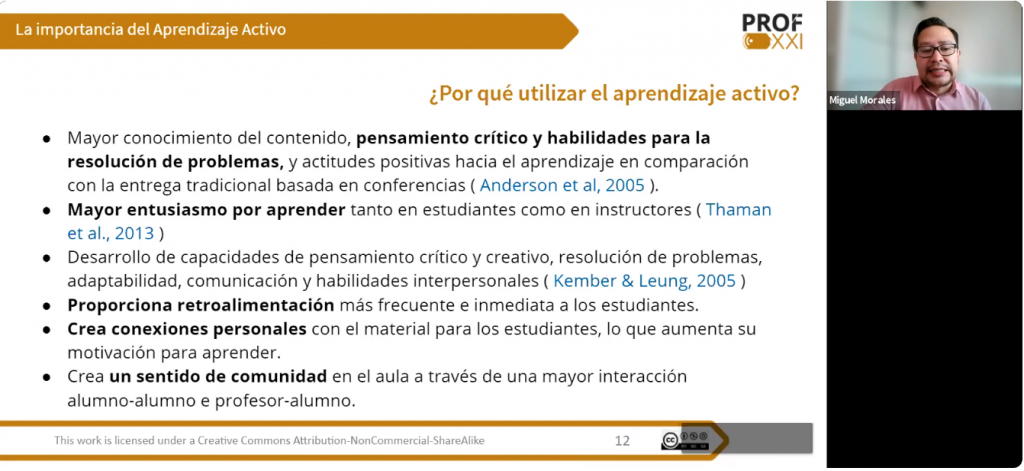
The second part of the workshop focused on a practical session that allowed participants to explore two tools that facilitate collaborative learning among students.
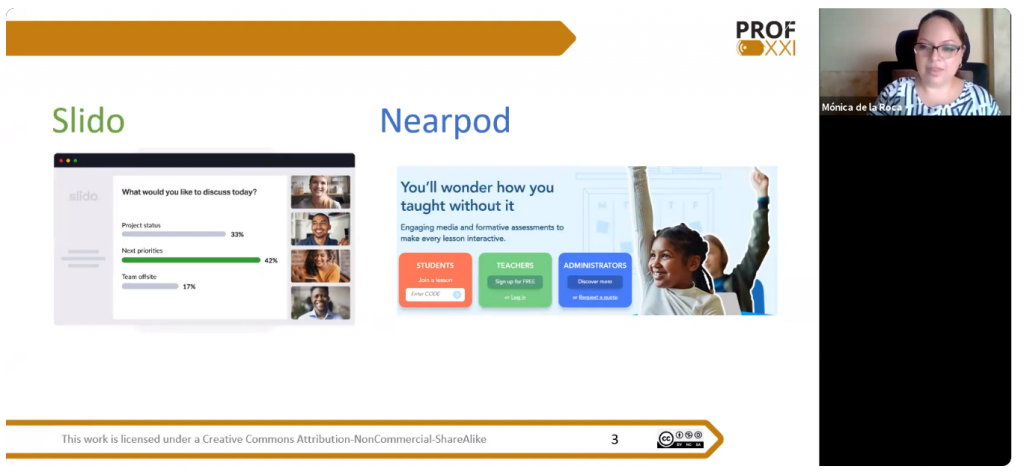
During the practical part of the workshop, participants structured and created a series of activities for active learning in a virtual course.
In the first practical part of the workshop, MSc. de la Roca introduced the tool Slido, which aims to facilitate real-time interactive communication. Through surveys, word clouds, and quizzes, participants had the opportunity to design the activity, implement it, and reflect on the use of the tool.
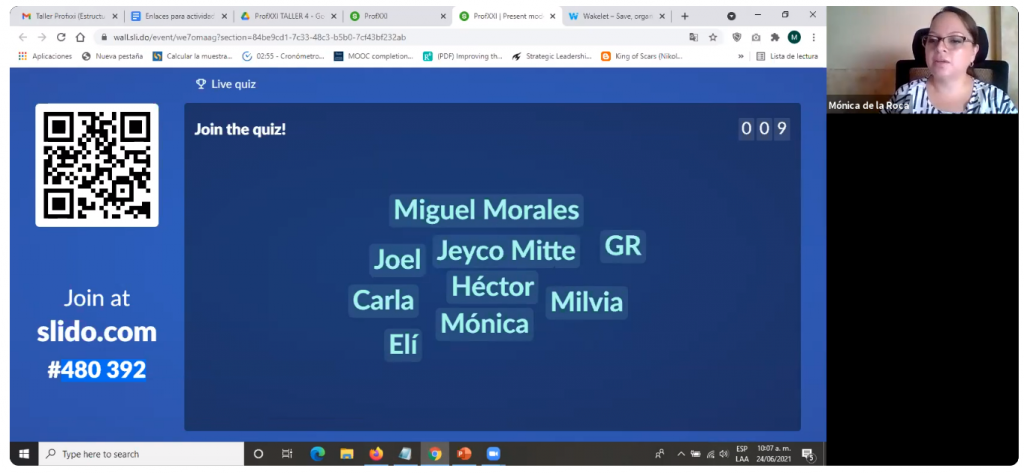
In the second practical part of the workshop, MSc. Sagastume introduced the Nearpod tool, which aims to create interactive content and activities for course development. This type of interaction is made possible through interactive videos, brainstorming sessions, surveys, word clouds, quizzes, collaborative boards, and more. Participants had the opportunity to design the activity, implement it, and reflect on the use of the tool.
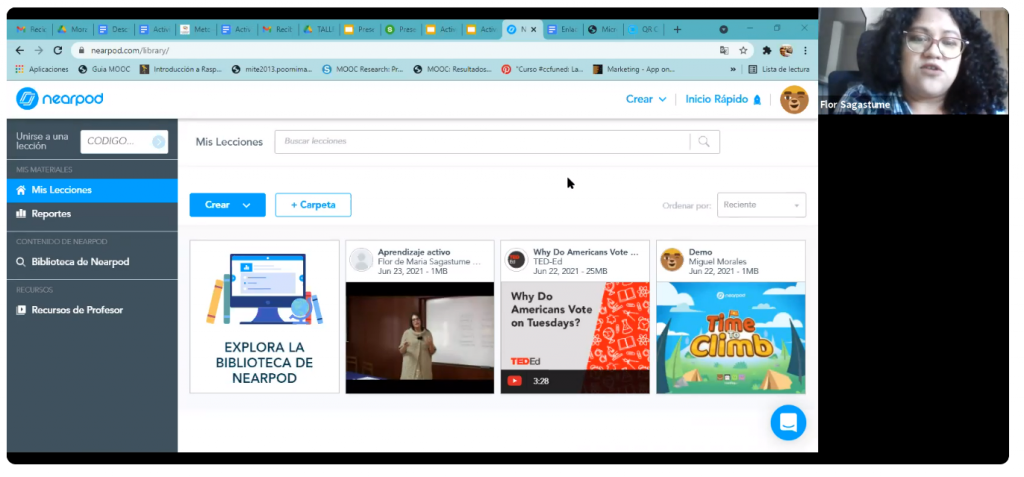
Finally, Dr. Morales emphasized the importance of a proper assessment process throughout the course to ensure that learning objectives are met.
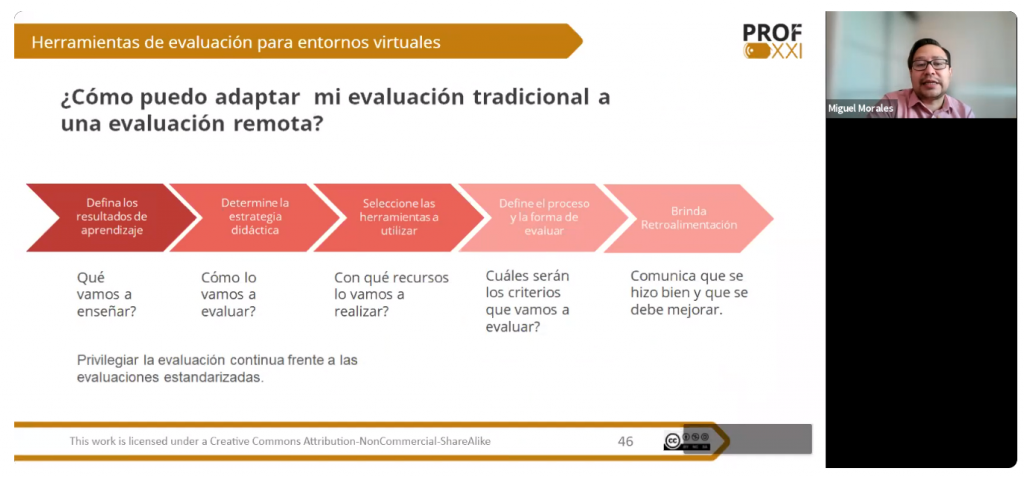
This workshop was divided into two main parts. In the first part, practical and useful digital tools were presented to support teachers in facilitating active learning in their virtual classes. In the second part, the workshop focused on the assessment processes in a digital context, discussing their adaptation and implications based on current conditions.
This is the fourth workshop in a series organized by the PROF-XXI Project with the aim of supporting teachers in developing content, digital resources, and enhancing the necessary competencies for the establishment of Teaching and Learning Centers (CEAs).
To review the recording of the workshop, please follow this link: PROF-XXI Workshops.


